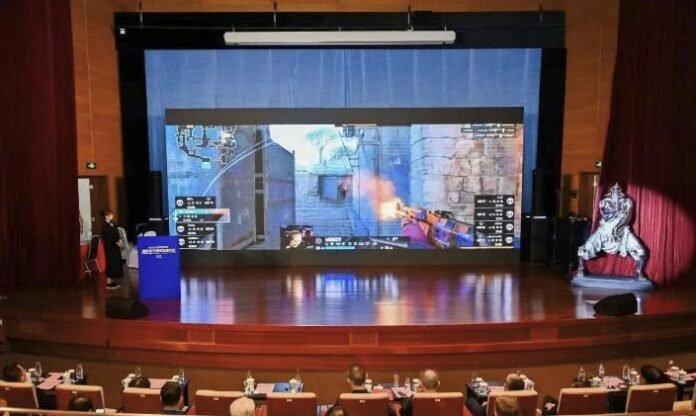In 2024, the world’s most popular monkey wasn’t swinging from trees — he was wielding a staff in a stunning video game. The breakout hero of Black Myth: Wukong, the lead character in China’s first AAA video game, captured global attention. In just two days after launch, the game racked up a staggering 8.4 million units sold on Steam, pulling in an estimated $405.2 million in revenue, according to VG Insights.
This isn’t just a gaming success story — it’s a cultural moment. Powered by cutting-edge visuals and rooted in Chinese mythology, Black Myth: Wukong shows how local stories, when told through world-class technology, can take the world by storm.
Esports as a global bridge
The momentum behind Chinese digital storytelling was also felt at the recently concluded International Esports Development Forum, where over 400 global guests from 40 countries — including government officials, international agencies, and industry leaders — gathered to explore how esports is reshaping entertainment, tech, and even diplomacy.
Irina Bokova, former Director-General of UNESCO, hailed esports as a transformative force, saying it offers equal opportunities for marginalized communities and actively supports the 2030 Sustainable Development Agenda.
Spiridon Pantos, President of the International Esports Committee (IEC), delivered a powerful keynote, highlighting the concept of the “Digital Silk Road of Esports.” Using next-gen tools like AR, VR, and XR, he explained how esports could drive global tech collaboration and cultural exchange.
He also announced several major initiatives, including:
A MoU between IEC and Beijing to showcase breakthroughs from China’s esports labs.
The launch of a National Esports Fund (with UNESCO) to distribute portable gaming kits to underserved youth.
The opening of AI labs in Beijing and Nairobi, providing hands-on training for global esports talent.
East meets West through digital culture
Greek Deputy Foreign Minister Harry Theoharis called esports a “new bridge between Eastern and Western civilizations.” He highlighted the success of projects combining Dunhuang murals with Greek mythology, which have already generated billions in value. He expressed hope for more esports IPs that fuse cultural heritage from around the world.
During the forum, the Global Esports Sustainable Development Initiative was launched. It includes:
A universal esports tech platform to support competitions with audiences of 50–100 million.
30 esports-themed cultural and tourism projects in China.
A global ESG (Environmental, Social, Governance) evaluation system for esports events.
China’s esports industry on a meteoric rise
In June 2024, Beijing was ranked among the top 10 most influential esports cities globally, further confirming China’s leadership in the field. The country now hosts the largest number of esports copyright holders worldwide, earning it the title of a “global esports supermarket.”
Looking ahead, China’s esports market is projected to surpass 300 billion yuan by 2026, and when factoring in related industries, the total economic impact could exceed 1 trillion yuan. The user base is expected to reach 245.6 million by 2029, with user penetration growing from 15.2% in 2025 to 17.3% in 2029.
From mythical heroes like Wukong to billion-dollar esports arenas, China is turning pixels into power — reshaping the global gaming landscape while telling its stories on a stage the whole world is watching.




